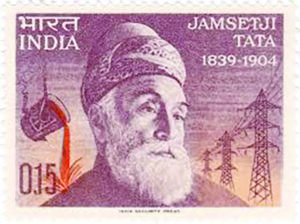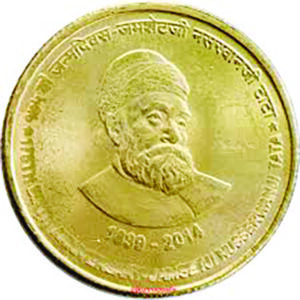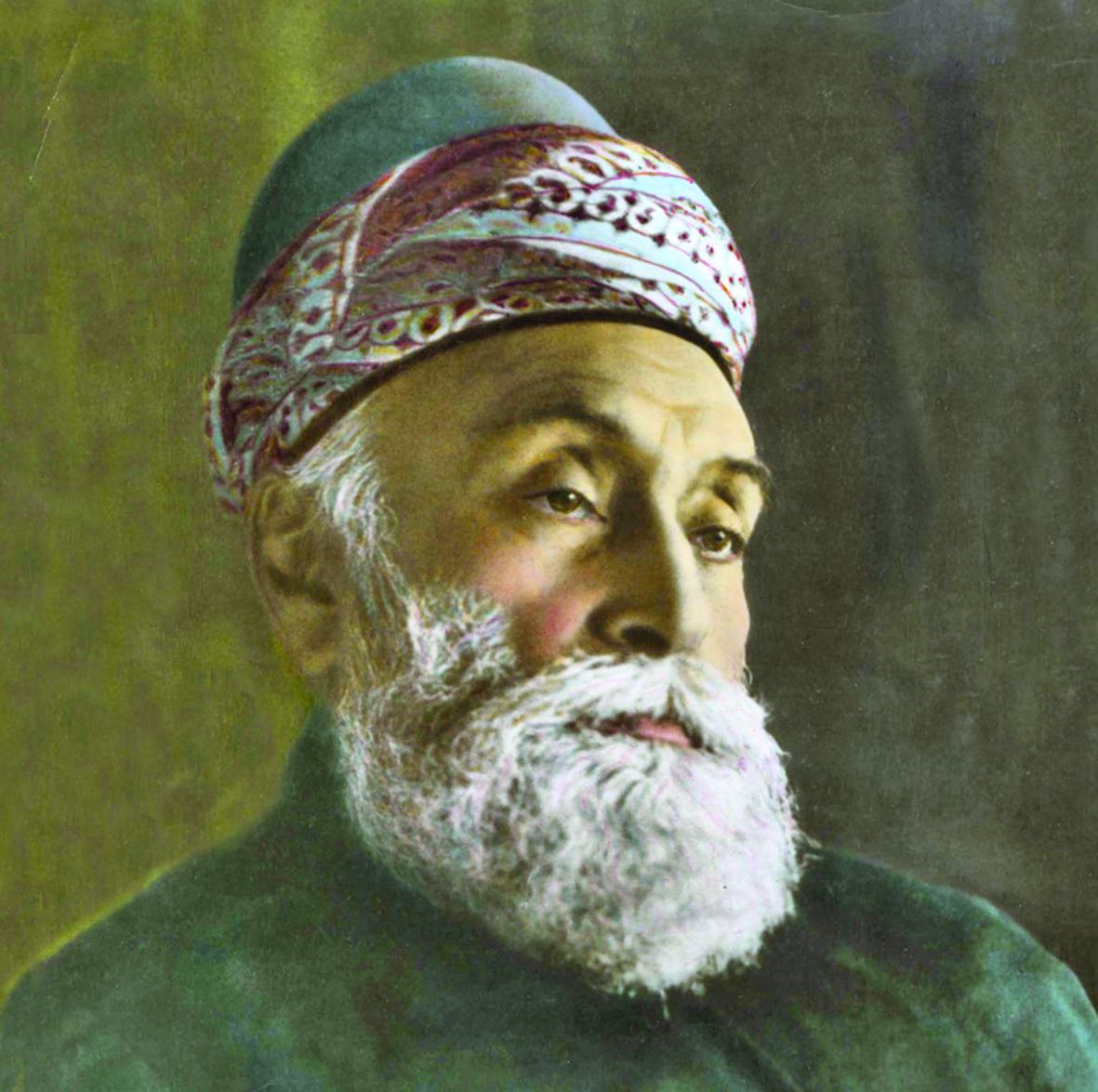 The great Jamsetji Nusserwanji Tata, revered as the ‘Father of Indian Industry’, and the Founder of India’s largest and most reputed conglomerate – the Tata Group, is also esteemed as the greatest philanthropist of the century, worldwide. 3rd March, 2024 marks the 185th birth anniversary of this visionary Indian pioneer industrialist whose trailblazing efforts contributed greatly to India’s industrialization. An exceptional entrepreneur, his unblemished and uncompromising sense of professional ethics and practice of infusing compassion in business, continue to reign as one of the hallmarks and legacies of the Tatas, setting the precedent for businesses across the nation and the world.
The great Jamsetji Nusserwanji Tata, revered as the ‘Father of Indian Industry’, and the Founder of India’s largest and most reputed conglomerate – the Tata Group, is also esteemed as the greatest philanthropist of the century, worldwide. 3rd March, 2024 marks the 185th birth anniversary of this visionary Indian pioneer industrialist whose trailblazing efforts contributed greatly to India’s industrialization. An exceptional entrepreneur, his unblemished and uncompromising sense of professional ethics and practice of infusing compassion in business, continue to reign as one of the hallmarks and legacies of the Tatas, setting the precedent for businesses across the nation and the world.
The Tata Group of industries, which encompasses several business sectors and operates in over 80 across the world today, is India’s best-known global brand, within and outside the nation. The massive success of the Tata Group is the result of the vision and mission of Jamsetji Nusserwanji Tata.
Jamsetji was born on 3rd March, 1839 in Navsari, Gujarat, as the only son of Nusserwanji and Jeevanbai Tata. Though Nusserwanji hailed from a family of priests, he was the first member of his family to step into business, setting up an export trading firm in Bombay. As a child, Jamsetji absorbed his father’s entrepreneurial expertise.
In keeping with his excellent arithmetic abilities, 14-year-old Jamsetji was sent to live with his father in Bombay, where he was enrolled at the Elphinstone College and became a ‘Green Scholar’ (graduate), and went on to join his father’s firm at age 20. While still a student, Jamsetji married Hirabai Daboo and they had two sons – Dorabji Tata and Ratanji Tata. The latter took over the Tata Group after his Jamsetji’s passing.
 Even as India was recovering from the Revolt of 1857, Jamsetji expanded his father’s business abroad by setting up branches in Japan, China, Europe and the United States. He launched a trading company in 1868 with a capital of Rs. 21,000. When he realised that Indian organisations could make a foray into the textile industry, which was then dominated by the British, he acquired a dilapidated mill in Chinchpokli, Bombay, in 1869, and renamed it ‘Alexandra Mill’, producing cotton fabrics. He later sold it and used the profit to set up his own mill in Nagpur.
Even as India was recovering from the Revolt of 1857, Jamsetji expanded his father’s business abroad by setting up branches in Japan, China, Europe and the United States. He launched a trading company in 1868 with a capital of Rs. 21,000. When he realised that Indian organisations could make a foray into the textile industry, which was then dominated by the British, he acquired a dilapidated mill in Chinchpokli, Bombay, in 1869, and renamed it ‘Alexandra Mill’, producing cotton fabrics. He later sold it and used the profit to set up his own mill in Nagpur.
He floated an enterprise named the Central India Spinning, Weaving and Manufacturing Company in 1874 with a capital of R 1.5 lakh. At the age of 37, he launched Empress Mills. Later, he founded mills in Bombay and Kurla, which were the stepping stones leading to the formation of the present-day Tata Group.
Jamsetji’s enterprises were known as much for their profitability and efficiency, as for their humane outlook and labour-friendly policies. He believed that the only way to lead India out of poverty was through disciplined industrialization. He set himself four goals:
- To establish an iron and steel company;
- To set up a world-class learning institution to tutor Indians in the sciences;
- To build a unique hotel; and
- To set up a hydro-electric plant.
He established the JN Tata Endowment in 1892, which continues providing merit-based scholarships till date, to help all Indian citizens, regardless of caste and creed for higher education abroad. Converting another of his four visions to reality, he established Mumbai’s hallmark Taj Mahal Palace Hotel, in 1903. The Taj Mahal Hotel held a special place in his heart because it served as a testament of pride, considering his motivation for building it was born of his being rejected entry earlier into a city hotel because of his Indian identity and he wished to build an equally grand place for Indians.
He donated land for a research institute in 1898, drew up a blueprint for it and solicited the support of the likes of Lord Curzon and Swami Vivekananda. Eventually, the Indian Institute of Science came into being and is counted among one of India’s top institutes of its genre.
Jamshedpur is known as ‘Tata Nagar’, in honour of Jamsetji Tata. His visions included a planned city with a lot of greenery. The city, which is now located in Jharkhand, was borne out of his vision, and therefore is now appropriately called Jamshedpur. Every year, on his birth anniversary, the entire Steel City (Jamshedpur), which he established, wears a festive look with bright illumination, with Jubilee Park bathed in bright, celebratory colours.
Greatly inspired and influenced by Swami Vivekananda’s philosophies, Jamsetji was an idealist and philanthropist who believed that India’s development depended upon the harnessing of her finest minds, and through disciplined industrialization. He was always sensitive to the welfare of his employees. He laid out plans to have a conducive workplace, shorter working hours and employee benefits such as provident fund and gratuity. His enterprises were noted for efficiency, for improved labour-protection policies, and for the introduction of finer grades of fibre.
A travel enthusiast, he travelled the world all through his life. While on a business trip to Germany in 1900, Jamsetji fell seriously ill and passed away on May 19, 1904, in Nauheim. Under the direction of his sons, Sir Dorabji Jamsetji Tata (1859–1932) and Sir Ratanji Tata (1871–1932), the Tata Iron and Steel Company became the largest privately owned steelmaker in India and the nucleus of a group of companies producing not only textiles, steel, and hydroelectric power but also chemicals, agricultural equipment, trucks, locomotives, and cement.
India’s then Prime Minister and leader, Jawaharlal Nehru described his pioneering leadership, as, “When you have to give the lead in action, in ideas — a lead which does not fit in with the very climate of opinion, that is true courage, physical or mental or spiritual, call it what you like, and it is this type of courage and vision that Jamsetji Tata showed.”
Prime Minister Narendra Modi released commemorative coins in 2015, honouring Jamsetji Tata on his 175th birth anniversary. On 17th February, 2020, M Venkaiah Naidu, former Vice President of India, released a commemorative postal stamp of Jamsetji Tata, commemorating 100 Years of Jamshedpur.
Jamsetji Nusserwanji Tata will forever be remembered for his legendary philanthropy and for establishing the legendary Tata Group in 1868, which presently has over 100 companies including Tata Steel, Tata Motors, Tata Consultancy Services, Tata Power and Tata Chemicals.
- કેવો સુંદર જવાબ! - 29 March2025
- પારસી સન્નારીઓ તેમના જાદુઈ સ્પર્શ સાથે બની સુરત મેરિયોટ અથવા લાઇન્સના રસોડાની રાણીઓ - 29 March2025
- મોબેદ મેહરાબાન ફિરોઝગરીનું અવસાન - 29 March2025
